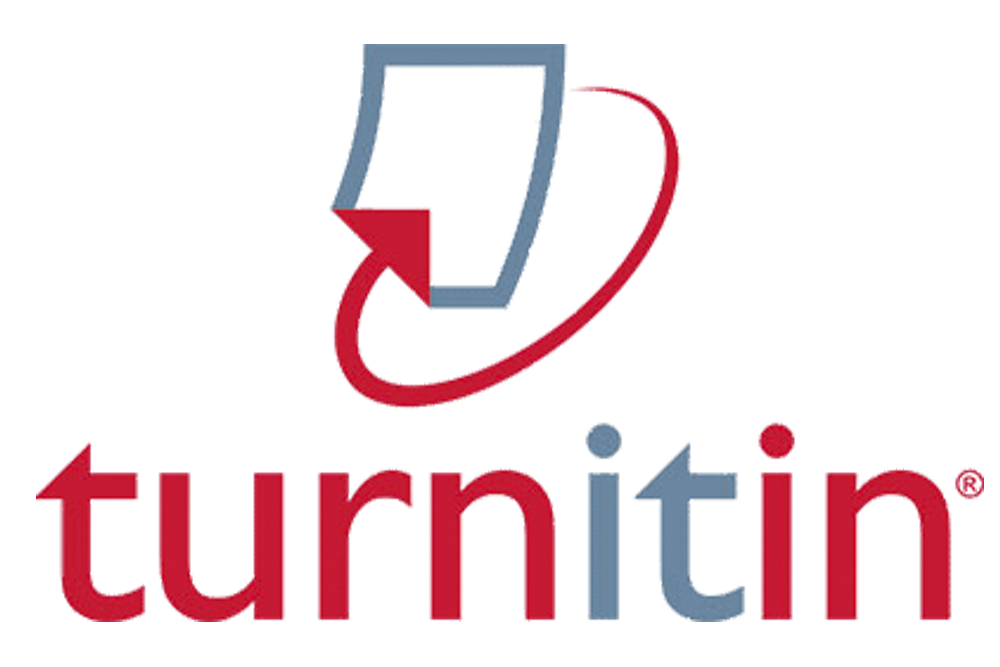STRATEGI KOMUNIKASI KPU BALI DALAM MENINGKATKAN LITERASI INFORMASI BAGI PEMILIH PEMULA PADA PEMILU 2024
DOI:
https://doi.org/10.25078/anubhava.v4i2.3915Keywords:
Communication strategy; KPU Bali; election literacy; social media.Abstract
The Indonesian General Election Commission (KPU) has set the voting date for the 2024 Election, which is February 14, 2024. In the 2019 elections, the voter turnout rate in Bali was high, reaching 80 percent, while the proportion of 2024 voters on February 14 will reach the age of 17 to 39 years, 55 to 60 percent, 22 percent of whom are novice voters. This is a challenge for KPU Bali in order to increase voter participation, especially novice voters, by creating a communication strategy related to election information literacy to prevent disinformation through social media. Based on the background, the problem formulation is found, namely 1) How is KPU Bali's strategy in improving information literacy through digital media for beginner voters in the 2024 Election? 2) How is the information management of KPU Bali to reduce disinformation about the 2024 Election on digital media channels? 3) How is the response of novice voters in accessing information provided by the Bali KPU on the implementation of the 2024 Election? The theories used in this research are Harold D. Lasswell, New Media theory and Uses and Gratification theory. This research uses mixed method. The research was conducted at the Bali Provincial KPU office, Denpasar. Qualitative data collection techniques are observation, interviews, documentation, and literature study. While for quantitative data using an online questionnaire and calculated by the Taro Yamane formula.
References
Anshori, A. (2023). Pemahaman Literasi Politik Pemilih Pemula dalam Upaya Pencegahan Informasi Hoaks Pemilu 2024. https://jurnal.umsu.ac.id/index.php/interaksi/article/view/14727.
Arrianie, L. (2022). Teori, Model, Persepktif, dan Media Komunikasi Politik. In L. Arrianie, Teori, Model, Persepktif, dan Media Komunikasi Politik (pp. 59-73). Jakarta: PT Kompas Media Nusantara.
Asosiasi Penyelenggara Jasa Internet Indonesia. (2020). Survei APJII 2019-2020.
https://survei.apjii.or.id/survei/
Axasheva, S. (2020). Social Media Use and Political Participation in Kazakhstan: The Mediating Role of Discussion and Efficacy.
Azis, H., Pawito, & Satyawan, A. (2020). EXAMINING COMMUNICATION
MEDIATION MODEL ON YOUTH ONLINE POLITICAL ENGAGEMENT. Profetik Jurnal Komunikasi, 13(2), 340–355. https://doi.org/10.14421/pjk.v13i2.1841
Bali, K. (2023, April). KPU Bali Tetapkan 3.287.880 Pemilih Dalam DPS Pemilu 2024. Retrieved from bali.kpu.go.id: https://bali.kpu.go.id/berita/baca/2313/album-photo
Beta, A. (2022). Literasi Digital pada Remaja dalam Upaya Menangkal Informasi Hoaks Jelang Pemilu 2024. https://jurnal.ugp.ac.id/index.php/jppmi/article/view/388.
Bogor, K. K. (2020). Buku Pintar Pemilu dan Demokrasi. In K. K. Bogor, Buku Pintar Pemilu dan Demokrasi (pp. 7-23). Bogor: Komisi Pemilihan Umum Kota Bogor.
Bungin, B. M. (2014). Metodologi Penelitian Kuantitatif (2nd ed.). Kencana
Prenadamedia Group.
Farabi, Q. n. (2023). KEHADIRAN MEDIA SOSIAL DAN PARTISIPASI POLITIK. https://jurnal.uai.ac.id/index.php/commline/article/download/1381/829.
Irninta Islamiah Yusran, S. (2022). PENGARUH MEDIA SOSIAL DAN PERILAKU PEMILIH DALAM MEMPREDIKSI PARTISIPASI PEMILIH PADA PEMILU 2024. Https://Jurnal.Darmaagung.Ac.Id/Index.Php/Jurnaluda/Article/View/1664.
Kriyantono, R. (2022). Teknis Praktis Riset Komunikasi Kuantitatif Dan Kualitatif. In R. Kriyantono, Teknis Praktis Riset Komunikasi Kuantitatif Dan Kualitatif (Pp. 289-355). Jakarta: Kencana.
Limilia, P. (2021). Literasi Media, Chilling Effect, Dan Partisipasi Politik Remaja . Https://Jurnal.Unpad.Ac.Id/Jkk/Article/View/31939.
Morissan. (2013). Teori Komunikasi Individu Hingga Massa. In Morissan, Teori Komunikasi Individu Hingga Massa (Pp. 421-431). Jakarta: Kencana.
Mariliyah. (2021). Hakekat Teori Dalam Riset. E-Jurnal Ivet.
Mukhofifah. (2022). PENGERTIAN LITERASI DIGITAL. ETHESIS IAIN KEDIRI.
Putri, A. (2022). FAKTOR-FAKTOR YANG MEMPENGARUHI PARTISIPASI POLITIK. Lembaga Penelitian Dan Pendidikan Mandala .
Rengganis., V. M. (2019). LITERASI PEMILIH PENYANDANG DISABILITAS: IDENTIFIKASI PERMASALAHAN DAN SOLUSINYA DI KABUPATEN SLEMAN. Journal KPU, 2-3.
Salim. (2021). TINJAUAN PUSTAKA DAN KERANGKA PEMIKIRAN. Elibrary Unikom, 4-7.
Teguh. (2023). MANAJEMEN STRATEGI. Repository Ub.
Yusran. (2022). PENGARUH MEDIA SOSIAL DAN PERILAKU PEMILIH DALAM MEMPREDIKSI PARTISIPASI PEMILIH PADA PEMILU 2024. Universitas Darma Agung, 12-15.
N.Ginting. (2020). PEMBAHASAN TEORI KOMUNIKASI. Universitas Sumatera Utara.
Sagita. (2020). Literasi Informasi Pemilih Pemula Provinsi Banten Pada Berita Pemilihan Presiden Dan Wakil Presiden 2019. Jurnal Untirta.
Gazali, F. (N.D.). STRATEGI KOMUNIKASI KOMISI PEMILIHAN UMUM KEPALA DAERAH. Jurnal Universitas Brawijaya, 2018.
ARTINI, S. W. (2022). PLATFORM MEDIA SOSIAL MENDUKUNG EKSPANSI SIARAN TVRI SULAWESI SELATAN DALAM TRANSFORMASI MEDIA. UNIVERSITAS HASANUDDIN MAKASSAR.
Aziz, M. A. (2023). STRATEGI KOMUNIKASI KOMISI PEMILIHAN UMUM (KPU) DALAM MENINGKATKAN PARTISIPASI PEMILIH MENYONGSONG PEMILU 2024 DI KABUPATEN BANYUMAS. UNIVERSITAS ISLAM NEGERI PROF. K.H SAIFUDDIN ZUHRI PURWOKERTO.
Masita. (2022). ANALISIS PENGGUNAAN MEDIA SOSIAL INSTAGRAM PADA AKSI GALANG DANA BANTU KORBAN PALESTINA. UNIVERSITAS HASANUDDIN MAKASSAR.
R., M. M. (2022). STRATEGI KOMUNIKASI KOMISI PEMILIHAN UMUM (KPU) UNTUK MENINGKATKAN PARTISIPASI MASYARAKAT DALAM MENGGUNAKAN HAK PILIH PADA PEMILIHAN UMUM 2019 DI KABUPATEN NGANJUK. INSTITUT AGAMA ISLAM NEGERI (IAIN)PONOROGO.
SETYANINGSIH, R. A. (2018). STRATEGI KOMUNIKASI KOMISI PEMILIHAN UMUM DAERAH KOTA BATU DALAM SOSIALISASI PEMILIHAN KEPALA DAERAH DI KECAMATAN BUMIAJI TAHUN 2017. UNIVERSITAS BRAWIJAYA.
YUSUF, M. (2020). STRATEGI KOMUNIKASI KOMISI PEMILIHAN UMUM (KPU) KOTA PEKANBARU DALAM MENSOSIALISIKAN PEMILU 2019. UNIVERSITAS ISLAM NEGERI SULTAN SYARIF KASIM RIAU.
Zhafira, D. (2021). Pemanfaatan Media Sosial Youtube Sebagai Sarana Kampanye Literasi Pertanian Bagi Generasi Muda. UNIVERSITAS ISLAM INDONESIA YOGYAKARTA.
Downloads
Published
Issue
Section
License
Copyright (c) 2024 Anubhava: Jurnal Ilmu Komunikasi HIndu

This work is licensed under a Creative Commons Attribution-NonCommercial-NoDerivatives 4.0 International License.
Anubhava: Jurnal Komunikasi Hindu is licensed under a Creative Commons Attribution-ShareAlike 4.0 International License. Permissions beyond the scope of this license may be available at Anubhava: Jurnal Ilmu Komunikasi











